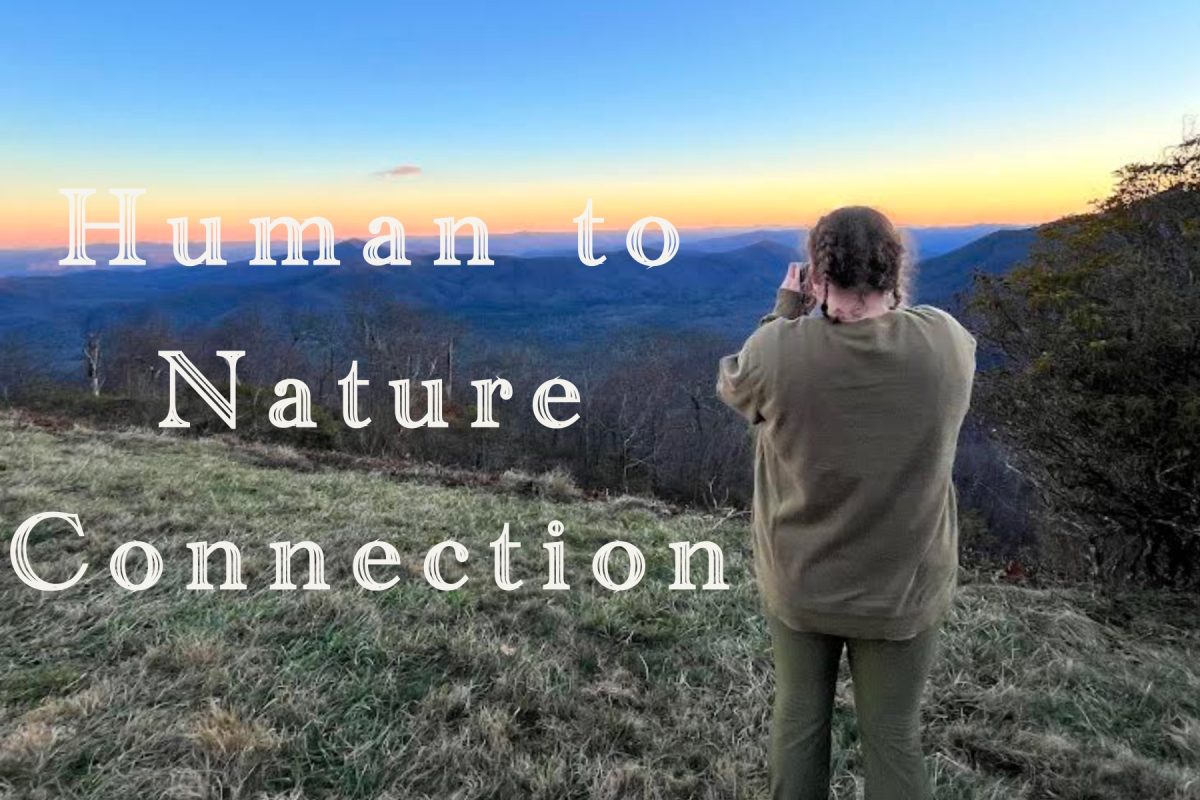Since the beginning of creation, nature has captured beautiful views and allowed people to enjoy mother nature while sitting on a park bench or exploring the vast landscapes of a national park. Upcoming generations have undergone what researchers call Nature Deficit Disorder, meaning adolescents and adults spend less time outdoors leading to behavioral problems. Richard Louv, a San Diegan journalist, explains how as long as people feel safe, nature exalts itself as an antidote for stress. Louv discovered that spending time in nature helps reduce high blood pressure and anxiety levels and helps increase self-esteem among the tense population. Through the growing body of research, studies prove nature to resonate as vital for all generations and have led health experts to invest in worldwide changes, aimed to bring nature into people’s everyday lives.
Through the rise of Artificial Intelligence, (AI) everyday factors in the lives of the general public change due to the modernization of technology. Generation Z (Gen Z) now grows susceptible to the beauty nature holds and the behavioral and mental influence the scenery stimulates because of the power of screens that they believe fulfill their needs. Televisions, phones, tablets and other forms of technology block a child from venturing outside to jump on a trampoline or play with neighborhood friends. Luckily, Ecopsychology emerged as a field of study to integrate psychology and environmentalism and examine the relationship Earth creates with the behavior of its inhabitants. Ecopsychologists and initiatives such as screen time limits on cell phones now allow parents to understand how to motivate their children outdoors to experience the appeal of nature.
“There is mounting evidence, from dozens and dozens of researchers, that nature has benefits for both physical and psychological human well-being. You can boost your mood just by walking in nature, even in urban nature. And the sense of connection you have with the natural world seems to contribute to happiness even when you’re not physically immersed in nature,” Trent University psychologist Lisa Nisbet, Ph.D. said.
Understanding the benefits of outdoor activities such as hiking, swimming and river rafting, allows researchers to understand how to exploit the use of smartphones in the 21st century and entice a greater amount of people outdoors. Interactions with the outdoors not only better a person’s mental health but also promote social interaction and increase feelings of happiness.
“Spending time outdoors makes me feel great and it gives me a sense of calmness when there is nothing around and I don’t have to think about anything. Sometimes I just like to go out and enjoy nature by itself and other times I tune out even more and listen to music as well. Right now, since we are going through that cold front, I can see its impact on my mental health because I can not escape outdoors,” Economics and Government teacher Glory Reyes said.
Elementary and middle schools continue to integrate nature into their curriculums by utilizing outdoor classrooms while a plethora of families opt into forest schools for their children. A forest school creates a nature-based community where trained practitioners nurture learner-led exploration and discovery. These school settings allow kids to engage with nature and experience how to create toys with natural objects and recognize the differences between trees and plants and learn about their roles in nature. Forest schools provide young students with the ability to work, explore and play outdoors while introducing dynamic and varied learning conditions compared to the traditional classroom.
While adolescents enjoy time in nature, scientists discovered a new way to study the effects of nature on a human’s mental state and examine why certain emotions rise while spending time in nature. This discovery—Ecopsychology—gained popularity with Theodore Roszak, who discovered that physical separation from the natural world leads to psychological dysfunction, meaning breakdowns in cognition, emotion or behavior among the population. Due to this, Binghamton University students discovered that to feel fulfilled in life, a person’s connection with nature needs to include all five senses to fabricate a successful relationship with nature.
On the other hand, tech companies began to introduce apps that include sounds of waterfalls, crashing waves and even bird chirps to aid stressed, overworked communities with a sense of relaxation. While this method of stress relief does not compare to breathing in the fresh air of nature and abiding by the ideas of ecopsychologists, these apps prove outdoor sounds have powerful impacts on one’s state of mind.
The time spent outdoors ultimately brings a feeling of comfort and satisfaction to busy communities that grow hungry for relaxation. Psychological research continues to advance studies to understand how spending time in nature can sharpen human cognition rather than staring at a screen for hours on end. Without the bits and pieces of nature in an individual’s everyday life, humans would live with feelings of distress which one breath of fresh air could resolve in the fast-paced life humans reside in.










